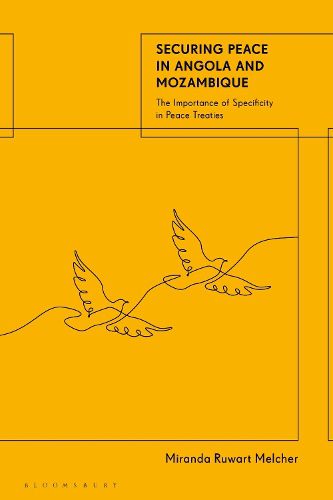Readings Newsletter
Become a Readings Member to make your shopping experience even easier.
Sign in or sign up for free!
You’re not far away from qualifying for FREE standard shipping within Australia
You’ve qualified for FREE standard shipping within Australia
The cart is loading…






This book helps explain how and why there are such diverging outcomes of UN peace negotiations and treaties through a detailed examination of peace processes in the Angolan and Mozambican civil wars. Does it really matter what's written on page 36, protocol V, section III, point 5 of a UN-endorsed peace treaty? Dr. Miranda Ruwart Melcher shows that seemingly small details - such as who wears suits, who has toothbrushes, and how specific words are translated between French and English - can and have delayed peace or contributed to restarting wars.
Dr. Melcher uses unique primary source data, including interviews with key actors who have participated in peace treaty negotiations, as well as thousands of previously newly opened UN documents. She argues that treaty specificity is an undervalued - but important - factor in researching the success or failure of peace processes. The book offers new insights and policy recommendations for key details whose presence or absence can have a significant impact on how peace processes unfold.
$9.00 standard shipping within Australia
FREE standard shipping within Australia for orders over $100.00
Express & International shipping calculated at checkout
This book helps explain how and why there are such diverging outcomes of UN peace negotiations and treaties through a detailed examination of peace processes in the Angolan and Mozambican civil wars. Does it really matter what's written on page 36, protocol V, section III, point 5 of a UN-endorsed peace treaty? Dr. Miranda Ruwart Melcher shows that seemingly small details - such as who wears suits, who has toothbrushes, and how specific words are translated between French and English - can and have delayed peace or contributed to restarting wars.
Dr. Melcher uses unique primary source data, including interviews with key actors who have participated in peace treaty negotiations, as well as thousands of previously newly opened UN documents. She argues that treaty specificity is an undervalued - but important - factor in researching the success or failure of peace processes. The book offers new insights and policy recommendations for key details whose presence or absence can have a significant impact on how peace processes unfold.